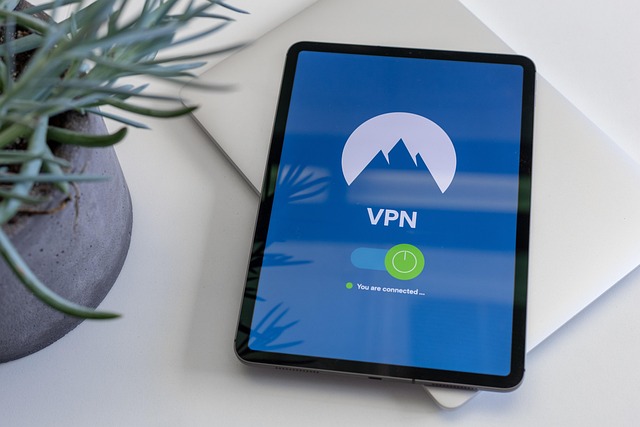Certified Public Accountants (CPAs) need to prioritize GDPR for data privacy. This involves enhancing IT systems with encryption, access controls, and secure backups. Regular compliance monitoring, strong file security like multi-factor authentication, and updates are vital. Robust record-keeping practices, including structured data storage, digital archives, and detailed documentation, are essential. Ongoing audits ensure data handling complies with GDPR, protecting client information. Staff training on Data Protection principles and regular updates are crucial for maintaining regulatory compliance.
In today’s digital landscape, financial IT systems are subject to stringent regulatory compliance requirements, particularly under GDPR for CPAs. This article guides accounting professionals in navigating these complexities. We explore key aspects such as understanding GDPR mandates, implementing robust data privacy measures, enhancing security protocols, and maintaining meticulous records. Additionally, best practices for regular audits, staff training, and fostering a culture of compliance are discussed to ensure continuous adherence to these critical standards.
- Understanding GDPR Requirements for CPAs
- Data Privacy: Key Aspects to Comply
- Implementing Security Measures Effectively
- Record Keeping and Documentation Best Practices
- Regular Audits: Ensuring Continuous Compliance
- Training Staff: Fostering Awareness and Expertise
Understanding GDPR Requirements for CPAs

For CPAs, understanding GDPR requirements is essential to navigating the intricate landscape of data privacy regulations. The General Data Protection Regulation (GDPR) imposes stringent rules on how personal data must be handled, stored, and protected across all sectors, including accounting and finance. CPAs need to ensure their financial IT systems are equipped to handle this heightened level of security and privacy. This involves implementing robust procedures for data encryption, access controls, and secure backup protocols. Compliance monitoring should become an integral part of the CPA’s operational framework, allowing them to identify and mitigate any potential risks or breaches effectively.
IT audits for accountants play a pivotal role in upholding GDPR standards by evaluating the security measures in place. By regularly assessing the integrity and confidentiality of client data, CPAs can maintain trust and demonstrate adherence to regulatory requirements. Furthermore, ensuring strong CPA file security is paramount. This involves employing advanced cybersecurity measures, such as multi-factor authentication and regular software updates, to safeguard sensitive financial information from unauthorized access or cyberattacks.
Data Privacy: Key Aspects to Comply

For CPAs, navigating data privacy regulations like the GDPR is essential for maintaining trust and avoiding legal repercussions. The General Data Protection Regulation (GDPR) sets stringent standards for how businesses handle personal data, emphasizing transparency, consent, and individual control. In the context of financial IT systems, this translates into ensuring robust audit trails for all data processing activities, from initial data collection to deletion.
Effective compliance monitoring requires a comprehensive understanding of where sensitive data is stored and accessed within the organization’s IT infrastructure. CPAs should implement data retention policies that align with GDPR requirements, specifying how long personal data needs to be kept and under what circumstances it can be deleted. This involves integrating compliance monitoring into day-to-day operations, allowing for proactive identification and correction of any privacy breaches or non-compliance issues.
Implementing Security Measures Effectively

Implementing robust security measures is a cornerstone of ensuring financial IT systems align with regulatory standards, particularly for CPAs navigating complex regulations like GDPR. Effective cybersecurity strategies involve multiple layers of defense. This includes strong access controls to restrict unauthorized personnel from sensitive data, encryption techniques to safeguard information during transmission and storage, and regular security training for staff to foster a culture of awareness.
Utilizing accounting compliance IT tools designed with these requirements in mind can streamline the process. Automated systems enable continuous monitoring, facilitating prompt detection and response to potential breaches. Regular IT audits for accountants further strengthen this framework by evaluating system vulnerabilities and ensuring ongoing adherence to regulatory guidelines. This proactive approach not only maintains compliance but also instills confidence in clients relying on the accuracy and security of financial data.
Record Keeping and Documentation Best Practices

Maintaining meticulous records and comprehensive documentation is paramount for CPAs to fulfill their regulatory obligations, especially under frameworks like GDPR for CPAs. Effective record-keeping involves creating structured systems to store and organize financial data, ensuring accessibility and integrity. This includes implementing secure digital archives with version control, where every transaction, decision, and audit trail is meticulously documented.
Best practices dictate that data retention CPA policies should align with regulatory requirements and business needs. Compliance monitoring tools can automate the process of identifying and categorizing records, streamlining access permissions, and ensuring proper disposal or archival procedures. By adopting these practices, CPAs can demonstrate due diligence, enhance accounting compliance IT tools’ effectiveness, and mitigate potential risks associated with non-compliance.
Regular Audits: Ensuring Continuous Compliance

Regular audits are an indispensable tool for CPAs to maintain financial IT systems’ compliance with regulatory standards, particularly GDPR. These systematic reviews ensure that data handling practices align with privacy and security protocols, safeguarding sensitive client information. By implementing robust audit trails IT infrastructure, CPAs can track every access control accounting interaction, providing a clear record of who accessed what data when.
Continuous monitoring through audits allows for early identification of potential non-compliance issues. This proactive approach enables professionals to swiftly address problems, ensuring their financial systems remain up-to-date with regulatory changes. Regular compliance monitoring not only instills confidence in clients but also mitigates risks associated with data breaches and legal repercussions under GDPR.
Training Staff: Fostering Awareness and Expertise

Training staff is a pivotal aspect of ensuring financial IT systems meet regulatory compliance requirements for CPAs, particularly when navigating complex regulations like GDPR. By fostering awareness and expertise among employees, firms can mitigate risks associated with non-compliance. This involves regular training sessions that delve into data protection principles, privacy laws, and the importance of maintaining detailed audit trails IT systems generate. Educating staff on their roles in preserving client confidentiality, securing CPA file storage, and adhering to strict data retention policies is essential.
Fostering a culture of compliance starts with leadership commitment. CPAs should encourage open dialogue about regulatory changes and their implications, ensuring everyone understands the impact of non-compliance not just on individuals but on the firm as a whole. Regular updates and refresher courses can help keep staff apprised of evolving data protection standards, enhancing overall CPA file security and reducing the risk of costly audits or legal repercussions.
